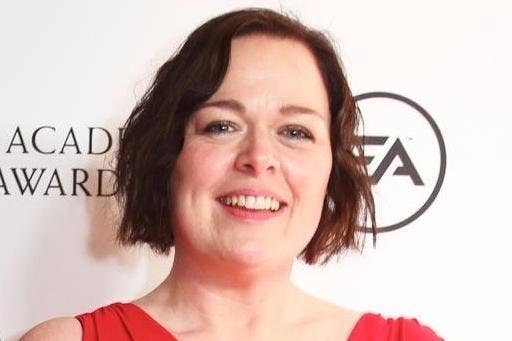"This industry is not going to protect us. We have to learn to protect ourselves"
The Chinese Room co-founder Jessica Curry calls for greater diversity in the industry, says everyone needs to do their part
It's been almost a full year since The Chinese Room co-founder Jessica Curry largely stepped away from games due to a combination of health reasons, sexism within the industry, and an abusive publisher relationship, and she'd had some time to reflect on how the industry can and should change to avoid driving people out in the future. As reported by Tom Quillfeldt on his Gamasutra blog, Curry shared those thoughts in a closing keynote at the 2016 European Women In Games conference last month.
"This year I've been thinking about... how we can all protect ourselves, protect each other," Curry said. "I truly believe we can thrive in this industry but it's going to take some willpower, bravery and effort. It's 2016 and it's time for this to stop. I want everyone to feel like they're safe and valued in the workplace."
Curry called for changes in behavior both from the people subjected to sexism and those around them. She was dismayed in particular at how she had handled some examples of sexist or inappropriate behavior in the past, trying to ignore it rather than standing up for herself.
"It's hard," Curry acknowledged. "We have mortgages, some of us have children, we don't want to lose our jobs. We don't want to be seen as the dreaded 'D' word--as difficult. [But] this industry is not going to protect us. We have to learn to protect ourselves."
One tendency she told women in the audience to look out for was apologizing in instances where it's not necessary.
"You have to stop being embarrassed about the fact that we are smart, strong, funny, talented, driven women," Curry said. "It's not about becoming more manly and a bully. It's about learning to become comfortable with a slightly uncomfortable truth which is that if we're strong, professional, direct, decisive and unapologetic, we're going to piss some people off. We're probably going to piss some other women off! That's what we need to change: we need to not be seen as bitches for being strong... if we stop worrying and giving energy to this likeability issue, we're free to be ourselves... our true selves rather than the women society expects us to be."
One of the most helpful things Curry said can be done to support people and ensure they stick around the industry is to tout their achievements far and wide.
"If someone's doing great work, reference their name, shout about them," Curry said. "A lot of women who write to me say that they don't feel heard, they don't feel seen and they don't feel valued. Always think about how you can be signal-boosting your colleagues and shouting about their achievements. [This could include] friends who inspire you or work that inspires you."
It's not just about changing how women are treated in the industry. Curry said the industry needs to diversify along all axes, whether it's gender, age, disability, or other traits. It was a particular focus for The Chinese Room's Everybody's Gone to the Rapture, which featured a black heroine and disabled and elderly supporting characters.
"Lots of people have said 'things are slowly changing.' Fuck that," Curry said. "I'm impatient. I know we have to take micro-steps and that it's one day at a time but it's 2016-it's time for real change. The games industry can be what we decide it's going to be. We have the power to change it. We have to be courageous, stand together and support one another.
"We have to treat other people with dignity and be strong for those who can't be strong for themselves. If you're strong, young, energetic and passionate, you can look after elderly disabled people like me! Because I'm running out of energy with an illness that takes a toll on my body [although] I'm not handing over the mantle, I'm not going to stop."

